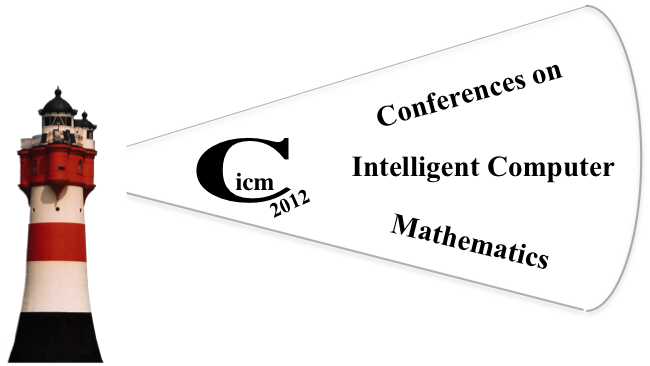Track C: DML (Chair: Petr Sojka)Mathematicians dream of a digital archive containing all peer-reviewed mathematical literature ever published, properly linked, validated and verified. It is estimated that the entire corpus of mathematical knowledge published over the centuries does not exceed 100,000,000 pages, an amount easily manageable by current information technologies. Following the success of DML 2008, DML 2009 DML 2010, and DML 2011 the track objectives are to formulate the strategy and goals of a global mathematical digital library and to summarize the current successes and failures of ongoing technologies and related projects, asking such questions as:
DML is an opportunity to share experience and best practices between projects in any area (MKM, NLP, OCR, pattern recognition, whatever) that could change the paradigm for searching, accessing, and interacting with the mathematical corpus. The track is trans/interdisciplinary and contributions from any kind of people on any aspect of the DML building are welcome. |


Conferences on Intelligent Computer Mathematics
CICM 2012
8.-13. July 2012
Jacobs University, Bremen, Germany
You must enable JavaScript to use this site
Last modified: April 04 2018 09:42:15 CEST

